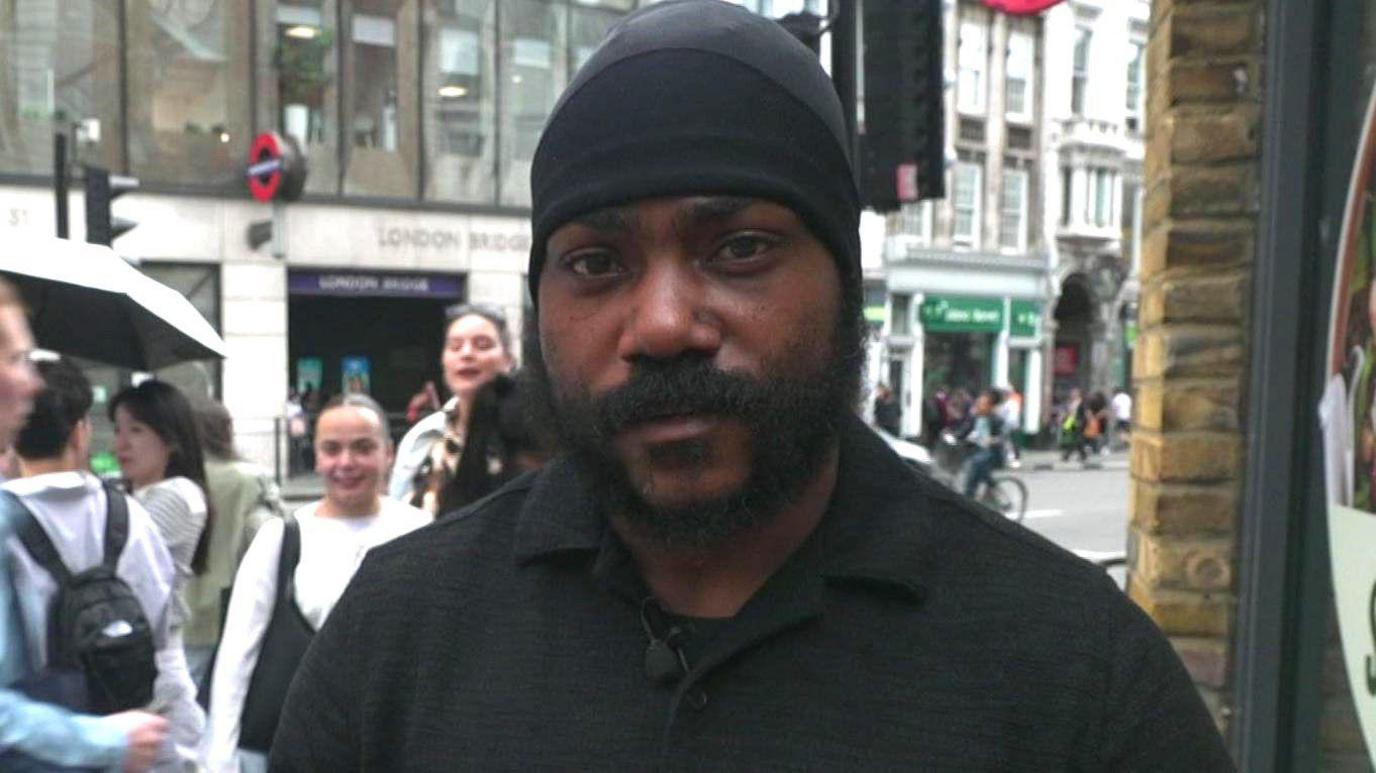First facial recognition vans deployed in Leeds
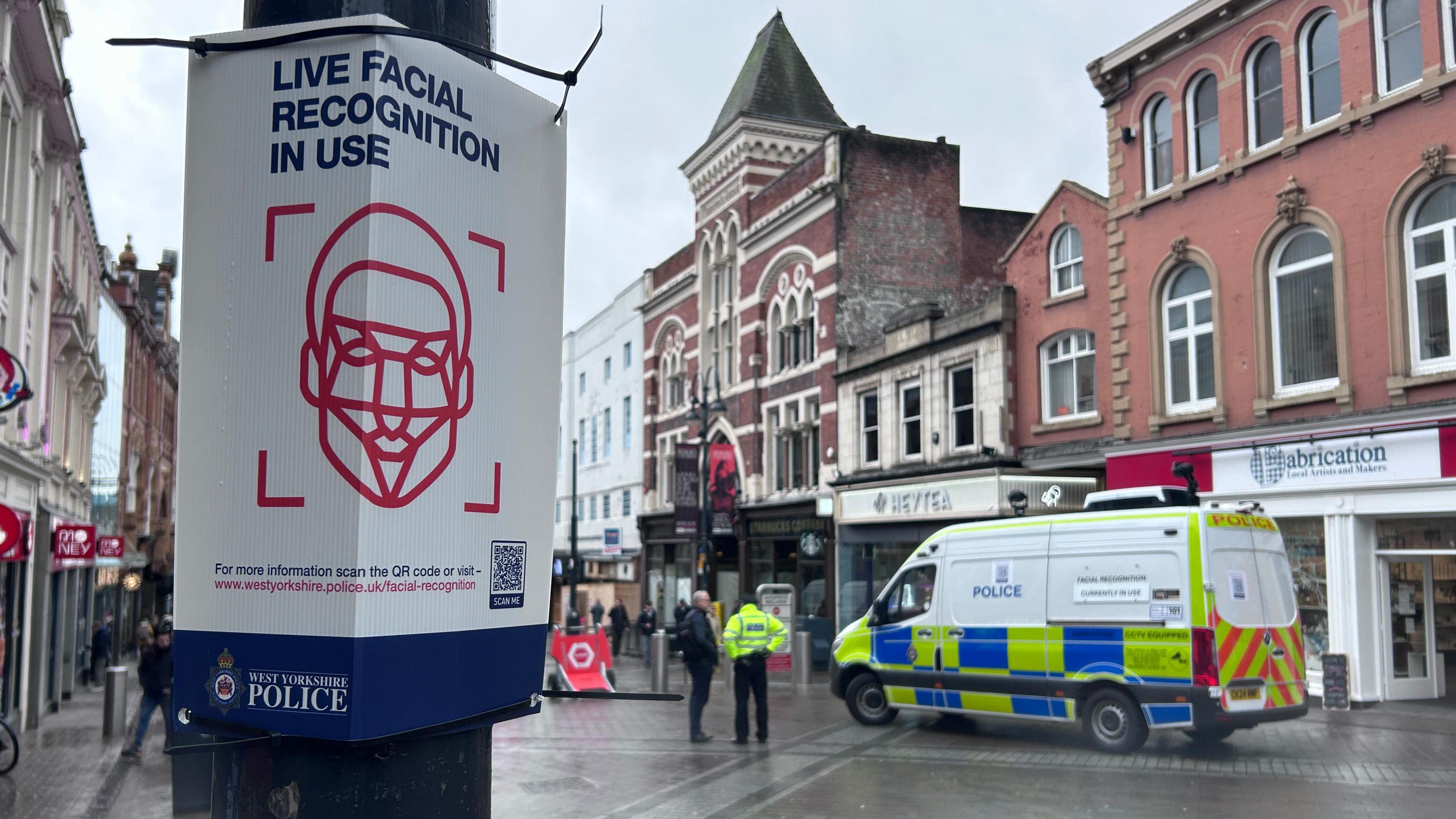
Live Facial Recognition vans have been deployed in Briggate, in Leeds.
- Published
Police have begun using live facial recognition technology in Yorkshire for the first time.
West Yorkshire Police have deployed two Live Facial Recognition (LFR) vans to Briggate, in Leeds.
The technology is capable of scanning people's faces as they pass and comparing them to an authorised watchlist.
The force says the cameras will help in "keeping our communities safe and bringing offenders to justice" but opponents say identity checking everyone, even if not suspected of any wrongdoing, is a "reversal of the presumption of innocence".
Facial recognition is a form of technology whereby a computer scans a person's face in order to identify them.
It works by measuring key features, such as the width of a nose, the distance between the eyes, and the shape of a person's cheek bones.
Those features are then compared with the faces of persons of interest stored on a police watchlist.
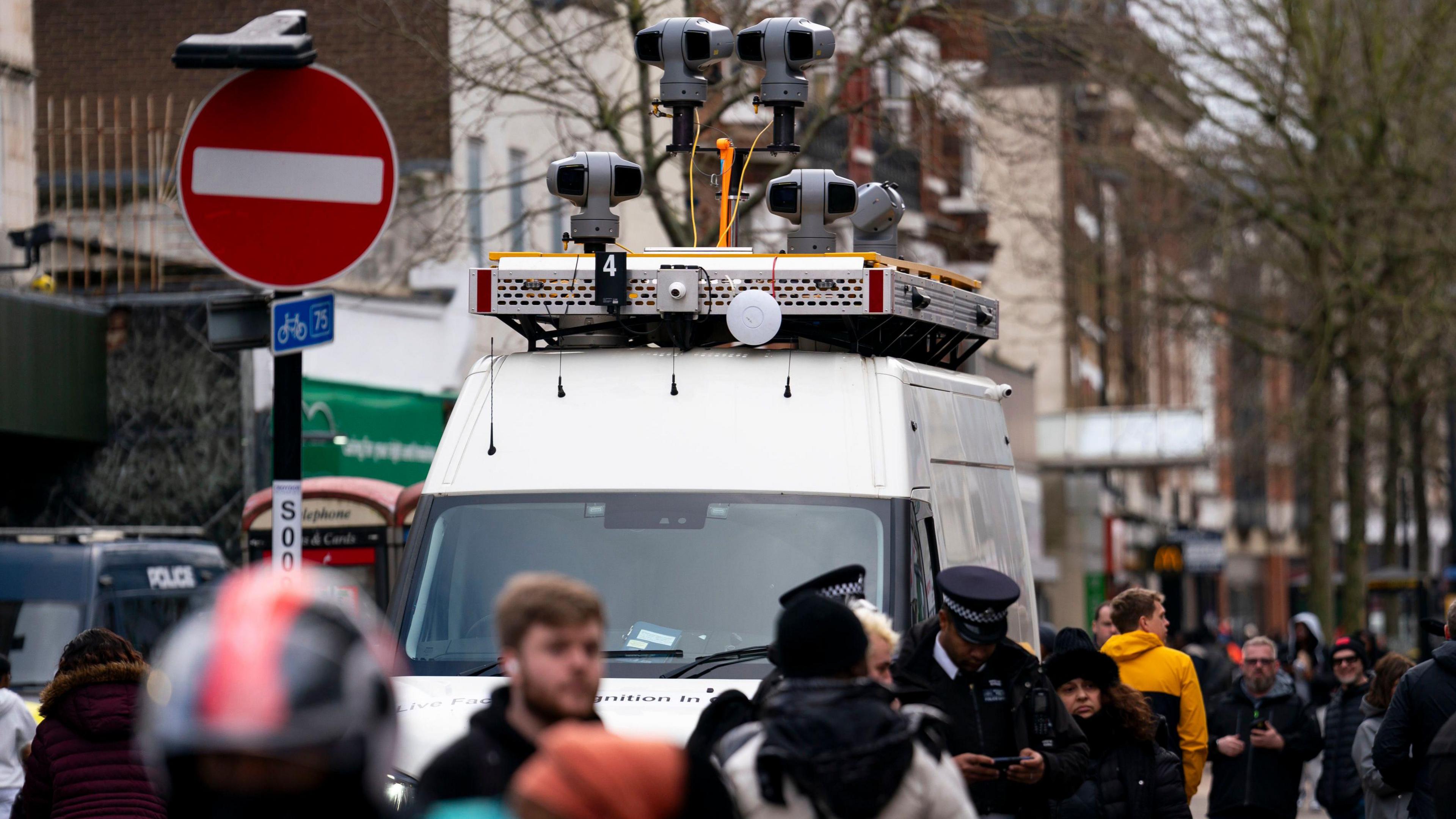
The Met Police faced criticism when it deployed the use of the technology in February 2024
Jasleen Chaggar, legal and policy officer at civil liberties charity Big Brother Watch, said: "People on these watchlists are not just restricted to serious crimes, it's also victims of crimes and witnesses to crimes.
"These are people that could then be stopped and pulled over by police as they're going about their daily lives."
However, a police spokesperson said only individuals of "legitimate interest" - including missing persons, key witnesses and suspected victims of some crimes - would trigger an alert.
Data relating to faces that do not match those on the watchlist would be instantly deleted, the force added.
'Rights-infringing'
But, Ms Chaggar said it was "a bit of a red herring to suggest that because the data is deleted afterwards, this is all okay".
"Of course, we all want serious crimes to be caught, but that doesn't mean that you need to introduce disproportionate and rights-infringing technology," she said.
"If the police said, 'we're going to take a cheek swab of everyone on the high street just to check that they're not who we're looking for', the public would rightly be outraged."
She also noted that eight out of ten people who had been incorrectly flagged up to the Met Police by LFR were black.
"It really raises questions why police in other areas of the country are investing in technology with known racial biases," she said.
Ch Insp Daniel Tillett, who is leading the rollout, said West Yorkshire Police was "committed to using LFR in a transparent, proportionate, and accountable way".
"Our aim is to use this as a tool to help locate dangerous individuals, safeguard the public, and support victims of crime - not to monitor ordinary people going about their daily lives," he said.
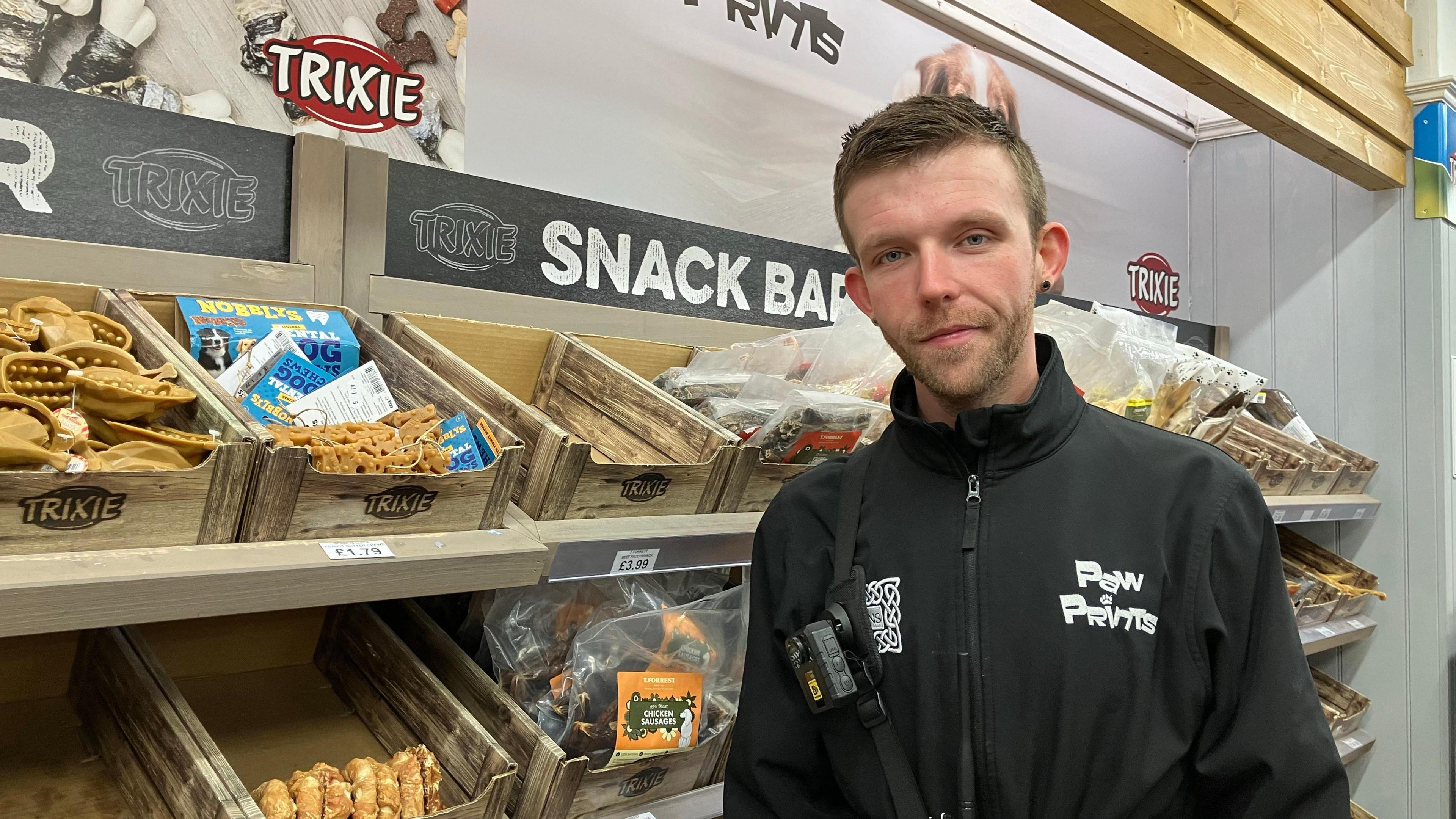
Matthew, at Paw Prints in Halifax, said dealing with shoplifters was "intimidating"
Matthew Emmett, shop manager at Paw Prints in Halifax, said LFR could "definitely" help to combat rising instances of shoplifting.
"Not a day goes by where you don't see someone actively doing it," he said.
"In the run up to Christmas and the busiest shopping time of year in retail, it's only going to get worse.
"Something like [LFR] at that time of year would be absolutely essential."
It could help make businesses "more aware of who to allow in, [and] who to watch out for," he said, adding that staying alert for shoplifters was "draining" for staff and "soul-destroying" for business owners.
"Any retail establishment at the minute would take any help they can get," he added.
'Innovative'
West Yorkshire's deputy mayor for policing and crime, Alison Lowe OBE, said the mayoral authority would continue to "scrutinise" the way police use LFR.
But, she said police "must have up-to-date operational tools at their disposal".
"Live facial recognition technology offers an innovative opportunity to help prevent and solve crimes, doing the work in minutes that could take officers many hours."
She said its use supported the authority's mission to halve violence against women and girls in the next decade by apprehending those wanted for stalking, harassment or domestic abuse.
A spokesperson for the Information Commissioner's Office, the UK's regulator for data protection, said it was committed to ensuring "proportionate and rights-respecting" use of LFR by the police.
"The police must ensure that [LFR] is deployed in a way that respects people's rights and freedoms, with appropriate safeguards in place," they said.
"It is covered by data protection law, which requires any use of personal data, including biometric data, to be lawful, fair and proportionate."
Get in touch
Tell us which stories we should cover in Yorkshire
Listen to highlights from West Yorkshire on BBC Sounds, catch up with the latest episode of Look North
- Published31 October
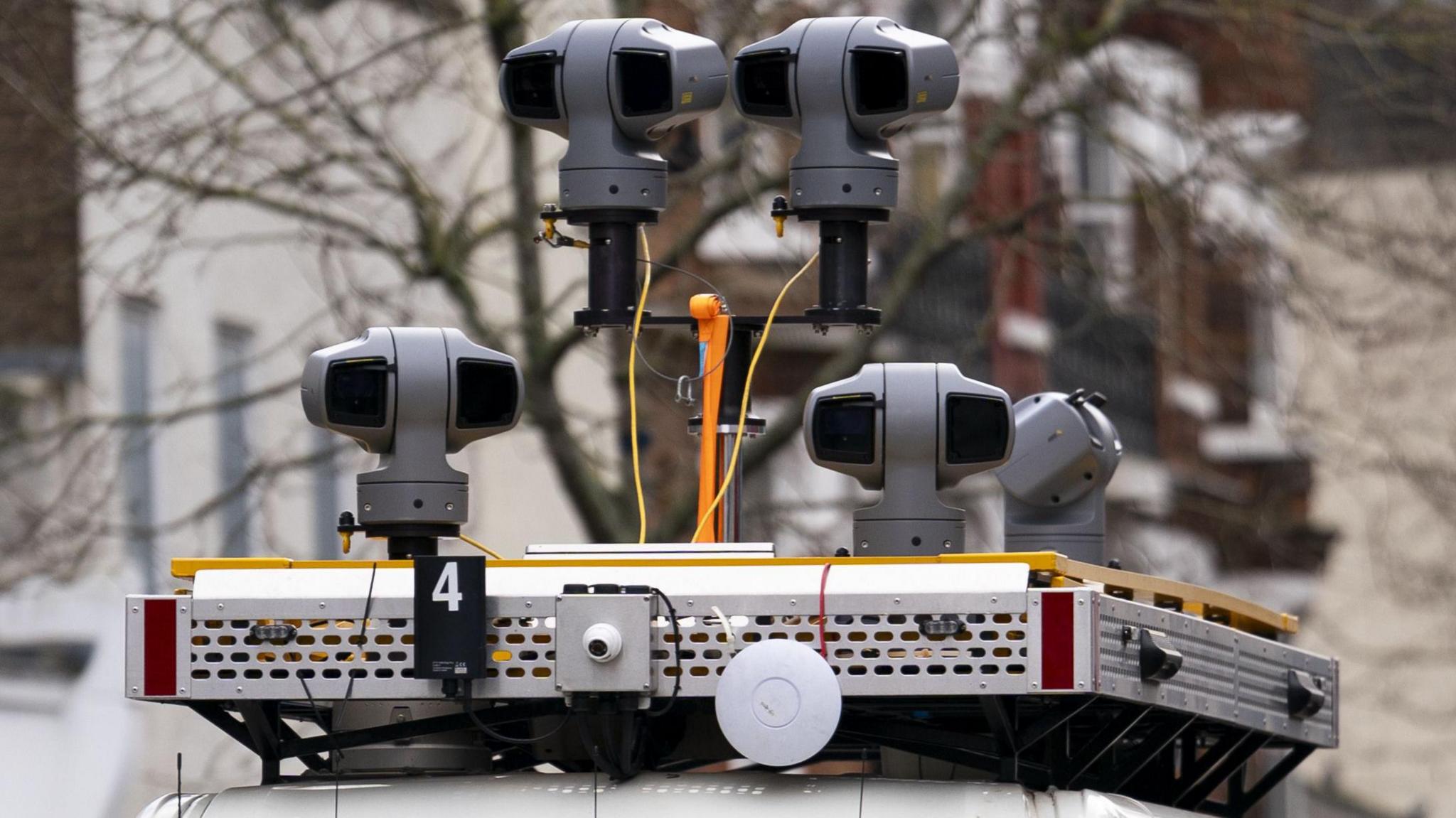
- Published25 April 2024

- Published18 August
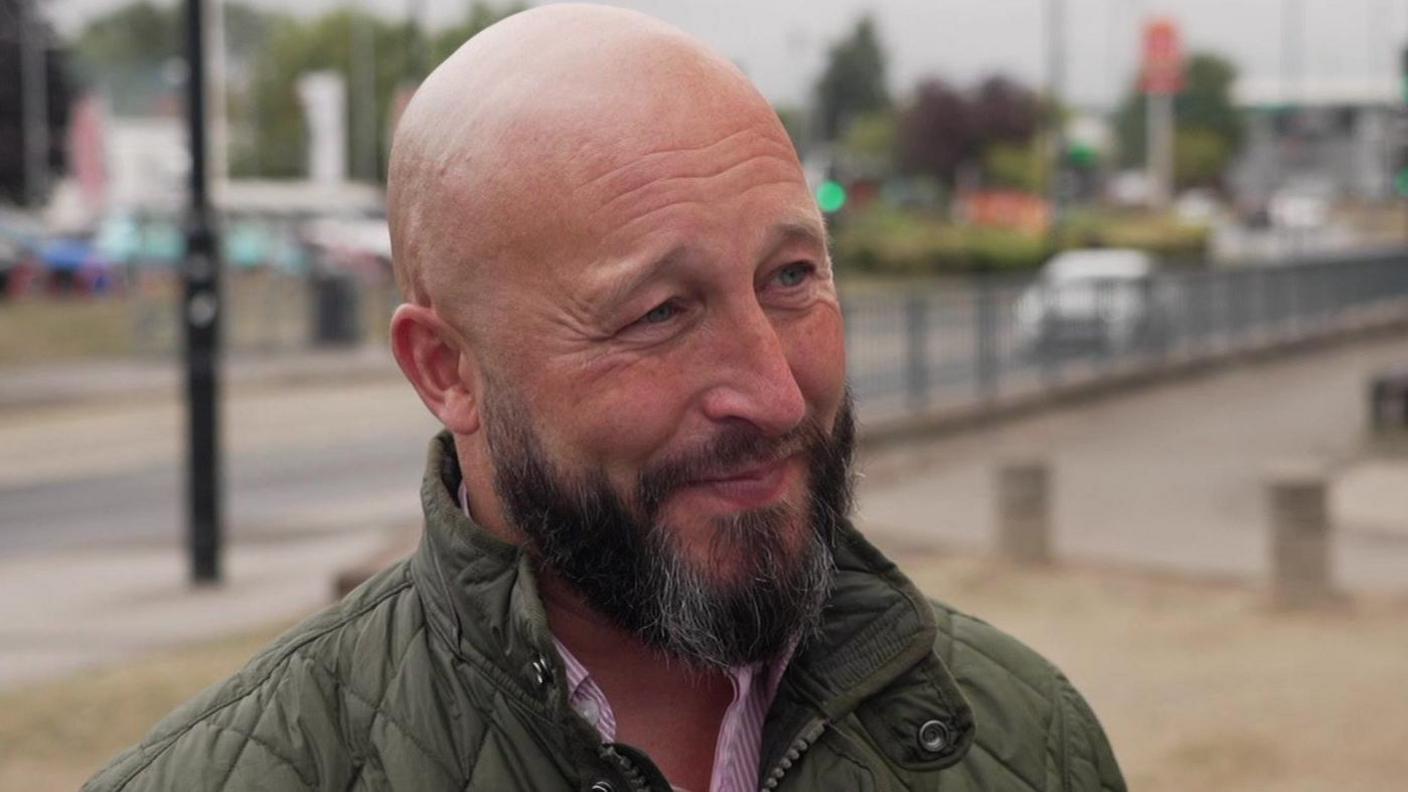
- Published6 August
